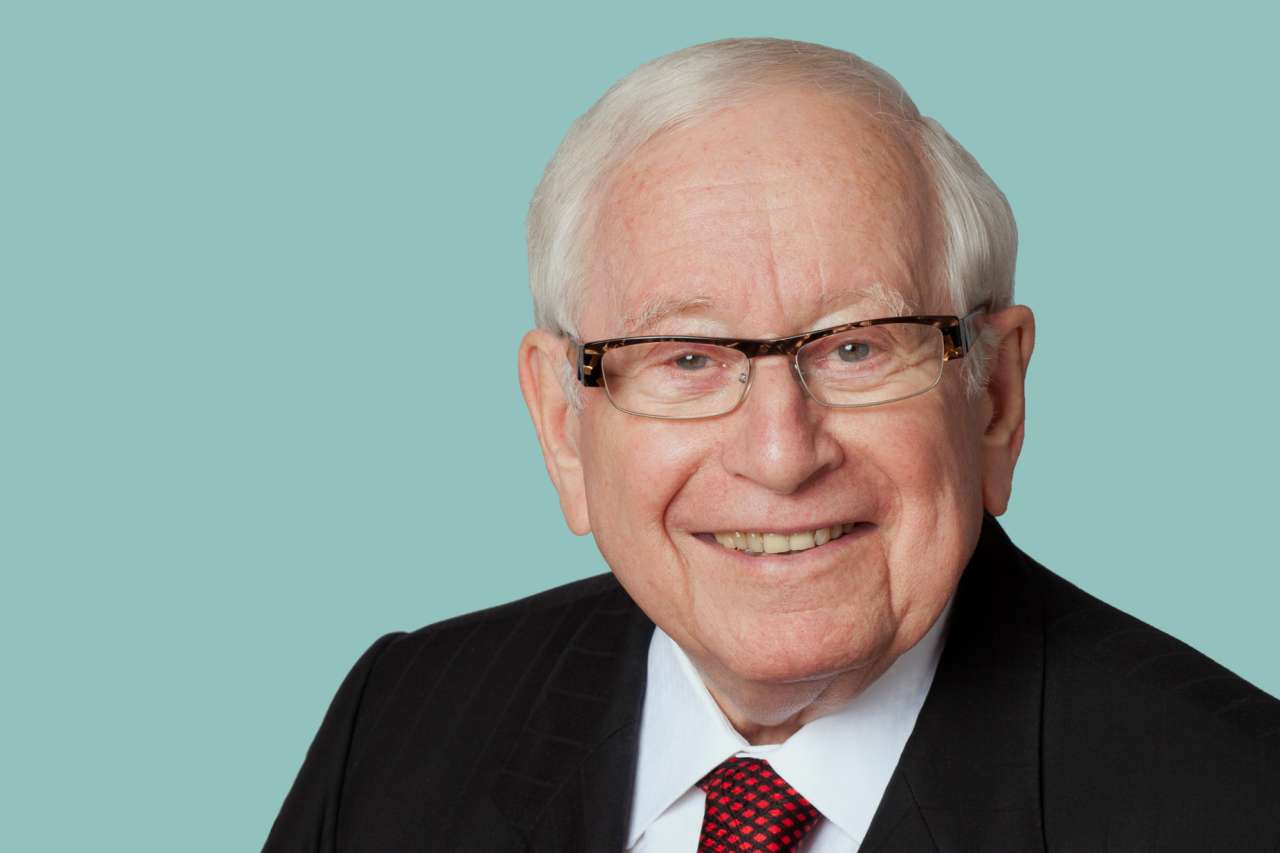
Retirement, a phase of life that many anticipate with a blend of excitement and apprehension, takes on an entirely different hue at the pinnacle of wealth. For the average person, retiring can be a complicated process as they may have to learn how to live on a much lower income than they did when they were employed.
However, billionaires almost never have to worry about running out of money when it comes time to retire. For billionaires, the golden years are not just a time for rest; they are an opportunity to redefine legacies, pursue passions with unabated vigor, and influence the world on a grand scale. In this article, we will discuss what does retirement look like for billionaires?
What Billionaires Do After Retirement?
Tv Shows
Rich people intrigue us all, especially self-made billionaires like Warren Buffett. It's no coincidence that retired millionaires frequently get new gigs doing radio or TV interviews. Even in these challenging circumstances, many rely on Buffett for financial guidance. Recently, he expressed his thoughts on the government stimulus.
As seen by George Lucasand other billionaires whose names and likenesses are as well-known as their prosperous businesses, billionaires frequently derive their riches from their names. Since the media adores a strong billionaire image, a lot of retired tycoons take up second jobs in radio or television.
Speaking And Consulting
Warren Buffett, known as the "Oracle of Omaha," is a prime example of a billionaire who has transitioned into a role of speaking and consulting post-retirement. Despite being in his 90s, Buffett remains a sought-after voice in the world of finance and investment.
His annual letters to Berkshire Hathaway shareholders are read worldwide for insights and advice. Buffett's speaking engagements and interviews are not just about sharing investment strategies; they are about imparting a philosophy of life, ethics, and philanthropy, making him a revered figure well beyond the financial world.
Politics
After retirement, billionaires are increasingly considering a career in politics; take a look at Meg Whitmanof California and Michael Bloombergof New York. Whitman became the CEO of eBayand amassed a $1.3 billion fortune before stepping down in 2008 to run as a Republican for governor of California.
Meg Whitman, who lost after investing $144 million of her funds, yet decided to join the board of Hewlett-Packard, demonstrating that retiring millionaires do not always have to give up.
While other billionaires prefer to stay out of the spotlight, they are willing to lend their substantial financial support to politicians. Stewart Rahr, a pharmaceutical entrepreneur, sold his firm Kinray for $1.3 billion and has made it his goal to back Donald Trump should he decide to run for office. For some retired millionaires, political influence is indeed determined by money.
They Have Tremendous Leisure Opportunities
A wealthy retiree has a very different lifestyle than a typical individual. Frequently, it entails having many residences across the world, having access to private aircraft, and having a crew consisting of personal trainers, cooks, and medical experts.
As a result, their retirement may be an ongoing condition of opulent travel and lavish experiences, very different from the more restrained travel and leisure pursuits of the typical retiree.
They also have the resources to follow unusual interests or obsessions, including rare object collecting, space flight investments, or sports club ownership. These are indulgences that are out of the grasp of the majority of people.
They Continue Doing Work They Love
Contrary to popular belief, a lot of billionaires continue to work in their companies because they are passionate about what they do and enjoy the rush of making a big difference and coming up with new ideas. Their identities and their work are frequently entwined, which makes retiring seem less desirable.
In actuality, a billionaire's retirement may not even resemble a regular retirement because they have so much money to spend as they like for the rest of their life.
Charity Work
Many billionaires focus on philanthropy after retirement, establishing foundations or supporting causes that address global challenges. Bill Gates, co-founder of Microsoft, is one of the most notable billionaires when it comes to charity work post-retirement.
Through the Bill & Melinda Gates Foundation, he has dedicated his life to reducing poverty, enhancing healthcare, and expanding educational opportunities.
His commitment to philanthropy is not just about donating money but also about using his influence to encourage other wealthy individuals to contribute to global causes. Gates' approach to retirement reflects a deep commitment to using wealth for positive social impact.
Investment Strategies Of Billionaires Retirees
As a billionaire retiree, diversifying and strategically placing your wealth is critical to maintaining and growing your fortune. Here are some sophisticated investment avenues that many of your peers are exploring;
Stocks And Stock Funds
For certain retired billionaires, simplicity is paramount. They put their money into dividend-paying companies and index funds. Just like they do with the passive rental income that real estate offers, they look for passive income from equities assets. To put it plainly, these billionaires want to save their time handling investments.
Rich people may also own a majority stake in one or more large corporations. However, a lot of billionaires own a small portfolio of equities. Index funds are popular hands-off investments for these ultra-rich individuals. They invest money in a sure list of stocks and may provide respectable returns with little time management, cheap fees, and superior diversification.
The dividend-paying equities that may produce passive income are likewise sought after by other billionaires. Of course, they are also interested in capital growth, but for some, earning current income is more important than capital appreciation.
In order to build a financial plan that incorporates sources of passive income, many high-net-worth customers engage with financial advisors to produce passive income through real estate investments or dividends.
Real Estate
Retired billionaires also frequently use their money to invest in real estate. Most people invest in a primary house as their initial real estate purchase, and subsequently, they purchase other homes, generally as rental properties. Others begin purchasing commercial real estate, such as office buildings, hotels, stadiums, bridges, and more, after purchasing some personal property.
Retired billionaires frequently own substantial real estate holdings. Real estate agents begin sending them bargains after they have established themselves as buyers in the market, and they can easily secure financing.
Millions of dollars are invested in real estate by large investors. Although it might not be a reliable source of income right away, real estate is a tried-and-true option for billionaires looking for passive income since it can provide significant profits over time.
Private Equity And Hedge Funds
You can only invest in a private equity firm or a hedge fund if you are a multibillionaire. Because its shares are traded on stock markets, public equity is well-known. Its liquidity is one of its benefits.
Shares of stock or public equity can be easily liquidated. Conversely, significant institutions such as pension funds or colleges typically provide investments to private equity funds. A minimum net worth of $250,000 is often required for accredited investors to participate in private equity firms.
Regulations define accredited investors, who can be both people and organizations. Private equity funds are subject to fewer rules than public equity in specific domains. If they are qualified investors, some extremely wealthy people make private equity investments.
Private equity and hedge funds are not the same thing. Hedge funds employ a combination of techniques and pooled funds to generate significant returns for their clients. Hedge funds make investments in whichever securities their fund managers believe will yield the best short-term returns.
What Are The Steps To Retiring As A Billionaire?
Retiring like a billionaire is a dream many share, but it's not just about amassing a massive fortune; it's about living a fulfilling, comfortable life after your working years. To achieve this aspirational goal, it's essential to follow a well-thought-out plan that encompasses various aspects of your life.
According to recent surveys, around 30% of young people want to retire as millionaires, and over half are confident they can do it.
Build A Strong Financial Foundation
To embark on a journey toward a billionaire's retirement, you must start by laying a solid financial foundation. This process begins years ahead of your target retirement date. You should prioritize saving and investing wisely.
Consistently contribute to retirement accounts such as 401(k)s, IRAs, or other tax-advantaged savings plans. Diversify your investments to minimize risk and maximize potential returns. Seek professional financial advice to help you navigate complex investment options and tax strategies.
The number of 401k millionaires continues to rise, and Vanguard’s first annual How America Saves reportfound that features like automatic enrollment and a first and necessary step in pursuing a $1 million-plus balance prior to retirement
Invest In Your Physical Health
A critical component of retiring like a billionaire is taking care of your physical health. If you still need to adopt a balanced diet and regular exercise routine, now is the time to start. A healthy body and mind will enable you to work efficiently, seize opportunities, and make wise financial decisions.
Moreover, good health can enhance your career prospects and increase your chances of remaining active and alert in retirement, which can contribute significantly to your wealth accumulation.
The Role Of Continuous Learning
Billionaires always continue learning and expanding their knowledge. Mental sharpness during retirement is vital for staying engaged, making sound decisions, and enjoying a fulfilling post-work life.
Consider pursuing educational opportunities, whether it's attending workshops, taking online courses, or reading books on subjects that interest you. This commitment to lifelong learning will keep your mind sharp and open doors to new possibilities during retirement.
Give Back And Find Purpose
Charitable giving is a common practice among billionaires, not only for the good it does but also for potential tax benefits. While not everyone can donate on a billionaire's scale, giving back to your community or supporting causes you're passionate about can be a rewarding part of your retirement journey. It not only brings purpose and fulfillment but also allows you to leave a positive legacy.
Create A Luxurious Lifestyle Within Your Means
Retiring like a billionaire doesn't mean you need to live extravagantly or spend frivolously. While it's natural to want to enjoy the fruits of your labor, it's essential to strike a balance.
Embrace the concept of selective luxury, which prioritizes quality over excessive abundance. Invest in experiences and possessions that genuinely matter to you, rather than succumbing to materialism. This approach will help you maintain financial security while enjoying the pleasures of life.
Build Social Connections In Retirement
One of the challenges of retirement is building a fulfilling social life. People who were accustomed to regular interactions with colleagues at work may find themselves missing the social aspect of their jobs.
To address this, actively seek out opportunities to connect with others in your community. Join clubs, volunteer, or engage in hobbies that allow you to meet like-minded individuals. Building and sustaining social relationships in retirement is crucial for overall well-being and happiness.
How Does The Retirement Of Billionaires Differ From The Average Person's Retirement?
Financial Disparity
The most glaring difference between the retirement of billionaires and the average person is the financial aspect. While the average person relies on savings, Social Security, and pensions, billionaires possess such vast wealth that they can retire without financial worries. Their investment portfolios generate substantial passive income, ensuring a luxurious retirement lifestyle.
Lifestyle Disparity
Billionaires enjoy a retirement lifestyle that is worlds apart from that of the average person. They can afford extravagant retirement destinations, private islands, and luxurious yachts, while the average retiree may need to budget carefully to make ends meet. Travel and leisure options for billionaires are virtually limitless, whereas affordability often limits the choices of the average person.
Legacy And Philanthropy
Billionaires have the resources to create lasting legacies through philanthropy, endowments, and the establishment of charitable foundations. Their retirements can be marked by substantial contributions to society, leaving a lasting impact on causes they care about. This ability to give back on a grand scale distinguishes their retirements from those of average individuals.
Continued Influence And Power
Even in retirement, billionaires retain their influence and power. They can remain involved in businessventures, investments, or even political endeavors, shaping the world in significant ways. In contrast, the average person's retirement often means stepping away from the professional world and focusing on personal pursuits.
Frequently Asked Questions
Do Billionaires Worry About Running Out Of Money In Retirement?
No, billionaires typically do not worry about running out of money in retirement due to their substantial wealth.
What Do Billionaires Do After Retiring From Their Primary Businesses?
Billionaires often engage in TV shows, speaking engagements, philanthropy, and other passion projects after retiring.
Do Billionaires Continue Working In Retirement?
Many billionaires continue working because they are passionate about their endeavors and enjoy making a difference.
How Do Billionaires Ensure A Comfortable Retirement?
Billionaires prioritize financial planning, physical health, continuous learning, giving back, and building social connections.
A Quick Recap
Many people ask what does retirement look like for billionaires; the retirement of billionaires differs significantly from the average person's experience. With immense wealth, they embrace opportunities to redefine legacies, engage in TV shows, consult, venture into politics, and lead lives of opulent leisure. Passion often keeps them working, while philanthropy becomes a central focus, shaping their post-retirement endeavors.
Their investment strategies span stocks, real estate, private equity, and hedge funds. To retire like a billionaire, one should prioritize financial planning, physical health, continuous learning, charitable giving, and social connections.
While replicating billionaire status may be challenging, these principles offer a path to a fulfilling and comfortable retirement. The billionaires' retirement journey underscores the intersection of privilege, ambition, and the potential for lasting global impact.



